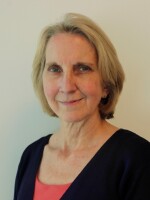NOEL KING, HOST:
Right now, small businesses are desperate for loans. Congress allocated $349 billion for small businesses. That money was gone in less than two weeks. But not all of it went to small businesses. Around $10 billion went to banks to cover processing fees. NPR's Laura Sullivan has been looking into financial records. Good morning, Laura.
LAURA SULLIVAN, BYLINE: Good morning.
KING: So $10 billion is a lot of money. What are banks doing to earn that money?
SULLIVAN: So banks like JP Morgan Chase, Bank of America, PNC and dozens of others are processing the loans. They're essentially the middlemen. They take the applications from their small business clients. And they funnel those requests up to the Small Business Administration, which approves the loan. And what's important to note here is that the money the banks are getting for their clients isn't their money. I mean, this isn't bank money. This is taxpayer money. Taxpayers are funding loans for small businesses to cover things like payroll, rent and utilities during the crisis.
KING: OK, something for taxpayers to think about. Let me ask you, what's the incentives for the banks to process all these small-business loans?
SULLIVAN: So fees - we took a deep dive into the public financial records of companies and banks. And we found the banks are making billions of dollars in fees. According to the program's rules, banks can take anywhere from one to 5% of the entire loan and keep it as a fee depending on how much the loan is worth. So any loan up to $350,000, the banks get 5% of that money. A loan between 2 million and $10 million, the banks get 1% of that money. So for example, the parent company of Ruth's Chris Steak House got a $10 million loan from the program.
JP Morgan Chase, which, according to financial records, processed that loan, got a $100,000 fee for this one-time transaction. And remember, these loans carry no risk for JP Morgan or the other banks. It's taxpayer money guaranteed by the Small Business Administration. And the loans require less work. The government is requiring less vetting compared to when a bank is lending its own money. Now, banks do normally get fees for processing SBA loans, but not in this volume, with these dollar amounts or over a two-week period.
KING: And you've been looking into it. And the dollar amount that you found, as I said, is about $10 billion have gone to banks so far.
SULLIVAN: Yes. When you break down the value of the loans and use the formula government established, it adds up to more than $10 billion in fees that went to the banks just in the past two weeks.
KING: So what are the banks saying? Are the bank saying, well, look; we're doing our job? We're supposed to get paid.
SULLIVAN: So we reached out to some of the biggest banks involved in the program including, PNC, JP Morgan, Bank of America. Some said they have to pay for thousands of employees that are working 12 and 18-hour days to get the loans pushed through and are now preparing - or hoping - for Congress to authorize another round.
They said, while vetting might not be as thorough as it would be for a regular bank loan, there is still significant, like, document collection and review. Wells Fargo says it's going to donate its money to charity. But it was required to do that as part of a government agreement following problems the bank had in 2018. None of the other banks have said that they intend to follow suit.
KING: So there's a really interesting question here, which is that, you know, thousands of small businesses said they were shut out. They couldn't get loans. Is there a reason to think that they didn't get loans because the banks knew they could make more in fees if they just worked with clients with really, really large loans?
SULLIVAN: There are currently five class action lawsuits in California and New York alleging just that. And the data does suggest more large loans were processed before smaller loans. But banks say that is simply not true. JP Morgan's - for one says they had different offices handling different loan sizes. And there were simply fewer large loans. So they were able to get through more of them.
KING: Really interesting stuff. NPR's Laura Sullivan. Thanks, Laura.
SULLIVAN: Thanks so much. Transcript provided by NPR, Copyright NPR.







